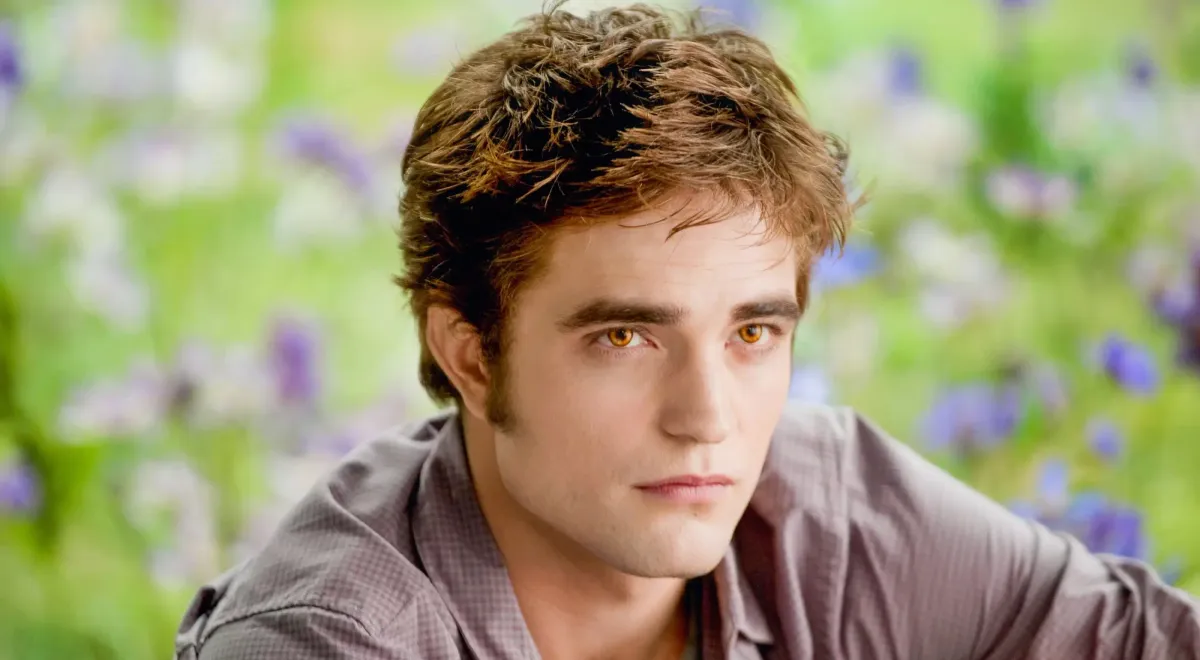Edward Saved my Soul. Twilight: A Tease, a Testimony

I lay in bed last night when I heard the singular howl of a lonely dog. It reminded me of Jake's painful wail for Bella in The Twilight Saga.
Heartbroken and in disrepair, Jake cried out for what couldn't be, torn by the melodrama of an unrequited romance.
The howling reminded me, just like twilight had, of my lost teenage innocence; of all the ailments and afflictions that characterized falling in love for the first time, only to be shredded inside out by eventual heartbreak.
There's a reason why the Twilight Saga has garnered such a committed following, and it's not just because the actors are beautiful and the conversations are cheesy. There are undying vampires and wild werewolves, sure, but as fantastical as the saga may seem, there is maturity too - a pensive purity that offers a profound reflection on adolescence, and life.
The coming of age story, written between the lines of corny action and exaggerated overtures, is pure and fundamentally relatable.
Take Edward, the undeniable heartthrob (a character whose actor has aged like fine wine). He's striking in his handsome portrayal as a very awkward high-schooler who is so unbearably good looking that his habit of extended staring is not even considered creepy.
No girl is good enough for him. That is, of course, until our gorgeously angelic protagonist Bella comes along.
There's immediate romantic tension, and what ensues is a tale about love, so potent, that a post-pubescent girl, literally, wishes for immortality as a vampire, just so she can spend eternity with her soul mate she only met a few months ago.
The term soulmate is not to taken lightly here, as any fan will know that Edward's reluctance to 'turn' his underage girlfriend into a blood-lusting fiend for life, is to protect her 'soul'.
My girlfriend let me know from the start that, "Twilight was written by a Mormon, so expect a certain level of prudence throughout."
Twilight, if by nothing else, is defined by such righteous holiness: a commitment to what is right and proper. Amongst all the violence and drama lies a parable that wishes to share with us timely lessons of chastity and virtue.
Edward is an old-fashioned, 100-year-old man. He likes to take things slow.
Bella, on the other hand, is hooked on the drug of infatuation, quickly constructing her whole existence around getting her fix.
When Edward eventually disappears in an effort to protect Bella from an 'abnormal' and dangerous life by his side, Bella almost immediately replaces him with Jake, a hot-headed 17-year-old werewolf with some pretty sweet motorcycling skills.
Unlike Edward, Jake's actor has not aged particularly well, and thus his buff beauty is suspended in the nethersphere that is fictional Forks, Washington.
Jake is jealous, protective, vengeful, and competes immaturely with Edward to win Bella's heart, and thus offer her a more 'normal' life. I mean, at least Jake is mortal.
And it surprised me to see how cool Edward was with offering Bella absolute freedom to choose. Sure, Edward is equally protective, but he abstains from any form of manipulation, consistently demonstrating a serene maturity in the face of Bella's polyamorous indecision.
Edward is always the 'bigger man'. He has, after all, seen the seasons pass, lovers come and go, multiple times before. There's something wholly sacrificial about him. He truly wants the best for Bella - even if it means a life of seclusion and sadness without her.
On the night when Bella's freezing in her tent, and Edward's cold-blooded embrace can do nothing to warm her, he encourages Jake to cuddle her all night long, all the while subjected to Jake's desires (remember: Edward hears the thoughts of everyone near him - everyone except Bella).
And therein lies the crux of this convoluted love triangle: despite the hot thoughts and hard feelings, they all want the best for each other, even though they're cluelessly confused as to what that may be.
I found myself admiring the selflessness of the characters, almost as often as I caught myself facepalming at the silliness of the script.
Twilight is, at it's core, a story of well-intentioned people performing caring deeds; pacts between factions with hateful histories, all in the name of defending what is good, and defeating that which is evil.
But it's the way the material flirts with decadence that keeps the viewers coming back.
Sex is at the forefront of the spectators' minds as sparks fly between the pheromone-filled cast. Edward and Bella tiptoe the line, baiting the audience with the possibility of indulging in the forbidden, only to snatch it away at the last second, replacing it with the wisdom of wholesome restraint.
Only after marriage do Bella and Edward 'do the deed', and only four movies deep do they finally get married. The slog of bridal rumination takes ages to unfold, all the while cheap entertainment is crammed down our throats.
There's no scarcity of frustration in the viewing experience. Unintentionally funny moments detract from the quality of the screenplay, as dodgy production plagues a film that perhaps would entirely turn off its observers if not for the jaw-dropping backdrop of Washington state.
These films are not 'good' in any objective sense of the word. Yet somehow, I walked away form the experience feeling somewhat reassured about humanity.
If a series of young-adult movies that conspicuously preaches religious values can become so iconic to a generation that consciously rejects them, perhaps it speaks to the unconscious yearning for a world that is kinder, more considerate and pure.
While I wouldn't consider myself a Twilight fan per se, I definitely detected a deeper connection to something universally relatable: behind a surface of fanfare, a spiritually healing experience that calls us closer to each other, and perhaps even to God, whatever that may be.